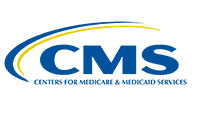CMS Releases COVID-19 IFR
The Interim Final Rule includes HME-related items, including a widening of who can conduct telehealth visits, discussion of CARES Act provisions on rural and other non-bid-area reimbursement rates, continuous glucose monitors, and more.
- By David Kopf
- Apr 30, 2020
 CMS has released an Interim Final Rule that includes various provisions and regulatory waivers designed to help HME businesses better provide care during the COVID-19 pandemic.
CMS has released an Interim Final Rule that includes various provisions and regulatory waivers designed to help HME businesses better provide care during the COVID-19 pandemic.
One section of the IFR reviews the CARES Act’s provisions regarding reimbursement rates rural and other non-bid-area. In the IFR, CMS affirms that it will extend the 50/50 blended rate for rural suppliers through Dec. 31 or the end of the COVID-19 public health emergency (PHE), if that lasts longer. CMS also says it will use the blended rate of 75 percent current adjusted rates and 25 percent unadjusted rates for suppliers in non-rural, non-bid areas during that period, as well. Both of those rate structures are retroactive to March 6.
CMS also won’t enforce certain clinical criteria in local coverage determinations governing therapeutic continuous glucose monitors to give diabetes patients more flexibility to monitor their glucose and adjust insulin doses at home.
For the duration of the COVID-19 PHE, CMS says it is waiving any limitations on the types of clinical practitioners that can furnish Medicare telehealth services. This means CMS has broadened its telehealth list to include both two key clinical partners/staff for HME providers: Physical Therapists (PTs) and Occupational Therapists (OTs).
Looping back on its March 31 COVID-19 IFC, CMS stressed that, while it won’t enforce clinical indications on National Coverage Determinations (NCDs) and Local Coverage Determinations (LCDs) for respiratory, home anticoagulation management and infusion pumps, those items must still be “reasonable and necessary.”
“Some external stakeholders appear to be misinterpreting statements that CMS made in the March 31st COVID-19 IFC as waiving medical necessity requirements; there are now questions as to whether items and services can be furnished or ordered without reason during the PHE for the COVID-19 pandemic,” the IFR reads. “Except as expressly permitted by statute, we remind physicians, practitioners and suppliers that most items and services must be reasonable and necessary for the diagnosis or treatment of an illness or injury or to improve the functioning of a malformed body member to be paid under Part A or Part B of Title XVIII.”
CMS will resume enforcement of these clinical indications for coverage once the COVID-19 PHE has ended.
The full IFR can be read at bit.ly/35jMaQk and a press release from CMS that provides a good summary of the IFR is available at go.cms.gov/3aPxwkV.
About the Author
David Kopf is the Publisher HME Business, DME Pharmacy and Mobility Management magazines. He was Executive Editor of HME Business and DME Pharmacy from 2008 to 2023. Follow him on LinkedIn at linkedin.com/in/dkopf/ and on Twitter at @postacutenews.